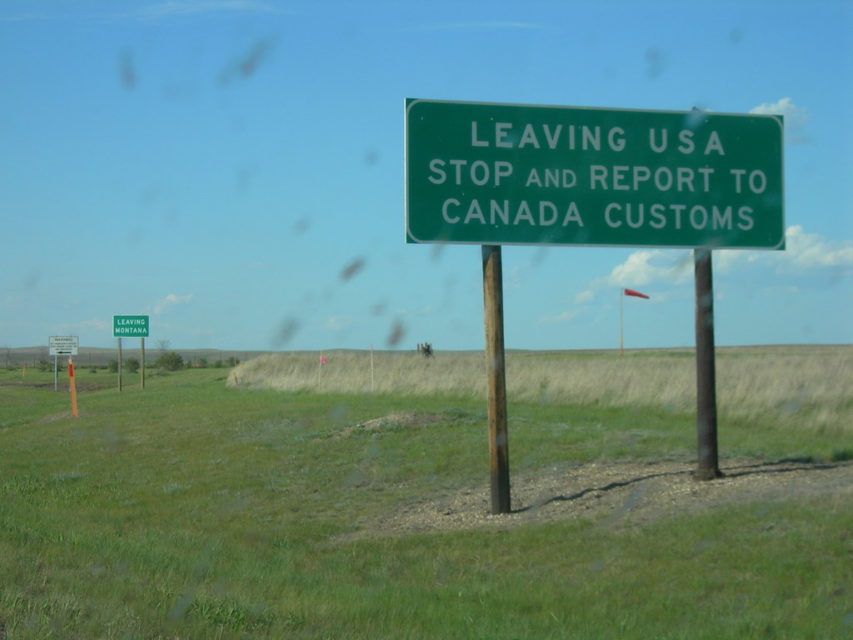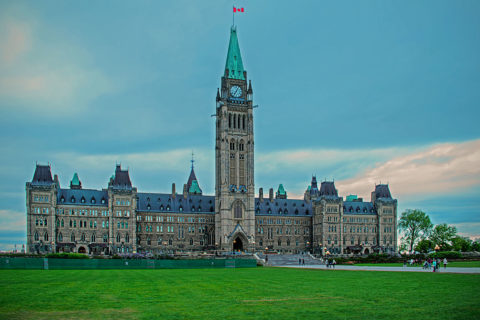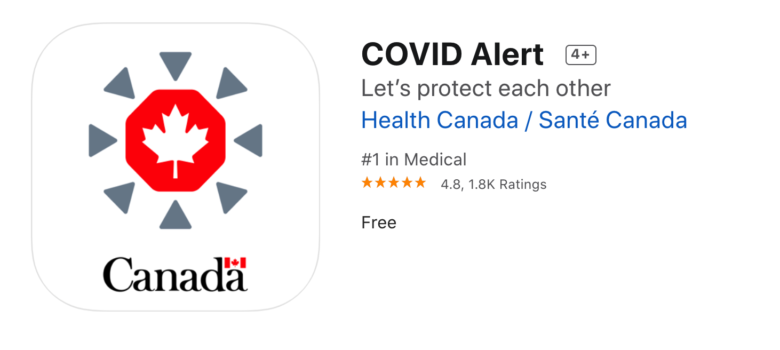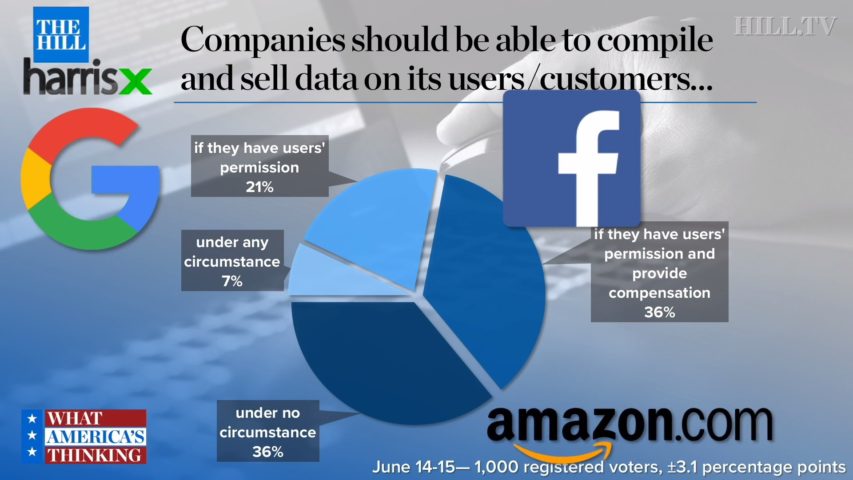Of politicians in power it might be said, “By their proposals, shall ye know them.” What they say they want to do is almost as significant as what they actually succeed in doing, for it offers an insight into their fundamental philosophy or state of mind. This is especially important, of course, when they seek to cling on to power by re-election or by some other means such as behind-the-scenes-influence.
That is why the proposal that the IRS should have access to the data of all bank accounts from which or into which more than $600 a year are paid (hardly a king’s ransom) is so important, despite the fact that it has not been enacted. The very fact that someone wanted to enact it, and thought it right that it should be enacted, is highly significant — and sinister — in itself, for the proposal demonstrates a totalitarian mindset.
The ostensible purpose of the proposal, of course, is the elimination of tax evasion. (Incidentally, I have noticed recently an increasing tendency, in the press and elsewhere, for the term tax avoidance to be used interchangeably with that of tax evasion, as if the difference between legality and illegality were of no real importance. This conflation is itself indicative of a totalitarian attitude, according to which a governmental end may be reached without the necessity for any law.)
The people who proposed that, in effect, every bank account should be routinely available for examination by the IRS, without any specific warrant for such an examination, thereby revealed that they thought that the gathering of tax so important that it superseded all other considerations.
Psalm 24 begins: “The earth is the Lord’s, and the fulness thereof, the world and they that dwell therein. For he hath founded it upon the seas, and established it upon the floods.”
A better version, according to the proposers, would be: Money is the government’s, and the fulness thereof, money and they that have any. For it hath founded it upon the printing press, and established it as legal tender.
I do not go as far as some economists of my acquaintance, who believe that tax evasion is a citizen’s civic duty: at least it is not in the circumstances prevailing in any western country, however unsatisfactory they may be. In my own case, I do not evade taxes and even my attempts to avoid them are rather feeble, for unfortunately there is so little at stake.
But I reject completely the idea that, morally, the first call on anyone’s money is the government’s, which in effect has the right to leave you pocket money by its grace and favor after you have paid your taxes at any rate that it likes. This is the very tyranny that the founders of America feared in majoritarian democracy, untempered by inalienable rights — inalienable even, or especially, by or to the government.
Theodore Dalrymple, “Monitoring Bank Accounts Would Make the People of the Government, Not the Government of the People”, The Iconoclast, 2021-11-01.
February 11, 2022
QotD: “By their proposals, shall ye know them”
May 5, 2021
January 23, 2021
Scott Alexander returns
Having been driven from his original blog due to a doxxing threat from a New York Times reporter, Scott Alexander has resumed his public blogging, this time on Substack:
Welcome to Astral Codex Ten! Some of you are probably veterans of my old blog, Slate Star Codex. Others may be newbies wondering what this is all about.
I’m happy to finally be able to give a clear answer: this is a blog about ṛta.
Ṛta is a Sanskrit word, so ancient that it brushes up against the origin of Indo-European languages. It’s related to English “rationality” and “arithmetic”, but also “art” and “harmony”. And “right”, both in the senses of “natural rights” and “the right answer”. And “order”. And “arete” and “aristos” and all those other Greek words about morality. And “artificial”, as in eg artificial intelligence. More speculatively “reign” and related words about rulership, and “rich” and related words about money.
(also “arthropod”, but insects creep me out so I’ll be skipping this one)
The dictionary defines ṛta as “order”, “truth”, or “rule”, but I think of it as the intersection of all these concepts, a sort of hidden node at the center of art and harmony and rationality and the rest. What are the laws of thought? How do they reveal themselves, at every level, from the flow of electricity through the brain to the flow of money through the global economy? How can we cleave to them more closely, for our own good and the good of generations still to come?
In practice, articles (another ṛta relative!) here tend to focus on reasoning, science, psychiatry, medicine, ethics, genetics, AI, economics and politics. The political posts sometimes stray into choppy waters, and I have immense sympathy for people who are sick of that and prefer to pass.
As with most Substack blogs, it’s a subscriber-supported effort with limited public posts available to non-paying subscribers (like me).
November 18, 2020
The Consumer Privacy Protection Act
Michael Geist looks at Bill C-11, which was introduced by Navdeep Bains on Tuesday:
Canada’s privacy sector privacy law was born in the late 1990s at a time when e-commerce was largely a curiosity and companies such as Facebook did not exist. For years, the privacy community has argued that Canada’s law was no longer fit for purpose and that a major overhaul was needed. The pace of reform has been frustrating slow, but today Innovation, Science and Industry Minister Navdeep Bains introduced the Consumer Privacy Protection Act (technically Bill C-11, the Digital Charter Implementation Act), which represents a dramatic change in how Canada will enforce privacy law. The bill repeals the privacy provisions of the current Personal Information Protection and Electronic Documents Act (PIPEDA) and will require considerable study to fully understand the implications of the new rules.
This post covers six of the biggest issues in the bill: the new privacy law structure, stronger enforcement, new privacy rights on data portability, de-identification, and algorithmic transparency, standards of consent, bringing back PIPEDA privacy requirements, and codes of practice. These represent significant reforms that attempt to modernize Canadian law, though some issues addressed elsewhere such as the right to be forgotten are left for another day. Given the changes – particularly on new enforcement and rights – there will undoubtedly be considerable lobbying on the bill with efforts to water down some of the provisions. Moreover, some of the new rules require accompanying regulations, which, if the battle over anti-spam laws are a model, could take years to finalize after lengthy consultations and (more) lobbying.
September 2, 2020
August 4, 2020
Ontario’s COVID Alert app
Michael Geist explains why he has installed the Canadian government’s COVID App on his phone, despite the privacy concerns such government tracking apps present:
The Canadian COVID Alert app is ultimately as notable for what it doesn’t do as for what it does. The voluntary app does not collect personal information nor provide the government (or anyone else) with location information. The app merely runs in the background on an Apple or Android phone using bluetooth technology to identify other devices that come within 2 metres for a period of 15 minutes or more. Obviously, the distance and timing are viewed as the minimum for a potential transmission risk. If this occurs, a unique, random identifier is stored on each person’s device for a period of 14 days. After the 14 day period, the identifier is deleted from the device.
The identifier does not identify a specific person or location information, and is not sent to any centralized database. If a person tests positive for the virus, they are given a key code to input into the app. Once the key code is inputted, anyone that was identified as being potentially exposed over the prior 14 days receives a notification that this has occurred and they should consider testing and/or self-isolating.
From a privacy perspective, this is very low risk. Indeed, the government’s position – confirmed in the Privacy Commissioner of Canada’s analysis – is that there is no collection of any personal information and therefore the Privacy Act does not apply. The Privacy Commissioner rightly points out this raises some concerns about the state of the law (arguing it should be sufficiently robust to allow for reviews of this kind), however, the use of random identifiers ensures that identification of individual is very unlikely. Moreover, the Privacy Commissioner’s review concludes that “there are very strong safeguards in place” with security of the data, commitments limiting use, independent oversight, and a pledge to de-commission the app (including deletion of all data) within 30 days of the Chief Public Health Officer of Canada declaring the pandemic over.
The Ontario Information and Privacy Commissioner was also engaged in the review process. Her recommendation letter points to commitments for potential ongoing issues, including ensuring that the app is effective, that there is monitoring of third party components such as the Google-Apple Exposure Notification System, and public transparency associated with the app and its use.
While the app passes legal muster, its introduction reinforces the problems with social inequities that COVID-19 has laid clear. Much like the connection between socio-economic status and infection risk, the app itself is only accessible to those who can afford newer Apple and Android devices. That obviously means that those with older phones or no wireless access at all are unable to use it. While I don’t think that is reason to abandon the initiative, the government should be exploring alternatives to allow all citizens to implement these safeguards.
May 9, 2020
Sidewalk Labs pulls out of their Panopticon-on-the-harbour project in Toronto
Chris Selley clearly hoped the Google-affiliated Sidewalk Labs would turn out to be a benign addition to the Waterfront:

Sidewalk Labs Toronto demo, 17 April 2019.
Photo by Raysonho @ Open Grid Scheduler / Scalable Grid Engine via Wikimedia Commons.
It would be a mixed-income and family-friendly community: 20 per cent low-income and 20 per cent middle-income, with 40 per cent of units two-bedrooms or larger. It would be fantastically energy-efficient. It would discourage waste production using “pay-as-you-throw chutes” leading to pneumatic tubes that would rocket your trash, recycling and organic waste to the proper facilities.
Some of the details seemed a bit far-fetched, and some of the ideas came to naught at the design stage. But the Google family of companies is not known for wretched failure. To many Torontonians, it was a compelling vision.
Unfortunately, a lot of the very people it was designed to impress hated the hell out of it.
[…]
So there is blame to go around — and to be clear, no one is officially blaming the city bureaucracy or the project’s opponents for scuppering the deal. But the fact is, Sidewalk simply wandered into the wrong saloon. Toronto is an intensely conservative city in the strictest sense of the word. Its establishment doesn’t even believe things that work in other cities would work here. It’s why we pilot-project food carts to death, instead of just allowing food carts. It’s why we’re closing parks and crowding people on sidewalks during the pandemic, instead of following other the lead of other cities and dedicating roads to safely spaced pedestrians and cyclists. When Ontario loosened alcohol regulations, many Torontonians predicted tailgate parties and picnics-with-wine would lead to mayhem — and they really, really meant it.
Sidewalk wanted to do something no other city had ever done. You can imagine the terror and confusion it sowed. And that was over 12 acres — six football fields. Toronto has a great many things going for it. I have argued in the past that its conservatism, broadly speaking, has served it very well. But Sidewalk reminded us what we trade for that. If we can’t take a bit of a chance on 12 acres, it doesn’t bode at all well for the many hundreds of other acres in this city that have been begging for redevelopment my entire lifetime — not if we want them to be at all innovative or memorable, anyway.
February 23, 2020
November 1, 2019
QotD: The much-ballyhoo’d open office benefits are a lie
As urban rents crept up and the economy reached full employment over the last decade, American offices got more and more stuffed. On average, workers now get about 194 square feet of office space per person, down about 8 percent since 2009, according to a report by the real estate firm Cushman & Wakefield. WeWork has been accelerating the trend. At its newest offices, the company can more than double the density of most other offices, giving each worker less than 50 square feet of space.
As a socially anxious introvert with a lot of bespoke workplace rituals (I can’t write without aromatherapy), I used to think I was simply a weirdo for finding modern offices insufferable. I’ve been working from my cozy home office for more than a decade, and now, when I go to the Times‘ headquarters in New York — where, for financial reasons, desks were recently converted from cubicles into open office benches — I cannot for the life of me get anything done.
But after chatting with colleagues, I realized it’s not just me, and not just the Times: Modern offices aren’t designed for deep work. […]
The scourge of open offices is not a new subject for ranting. Open offices were sold to workers as a boon to collaboration — liberated from barriers, stuffed in like sardines, people would chat more and, supposedly, come up with lots of brilliant new ideas. Yet study after study has shown open offices to foster seclusion more than innovation; in order to combat noise, the loss of privacy and the sense of being watched, people in an open office put on headphones, talk less, and feel terrible.
Farhad Manjoo, “Open Offices Are a Capitalist Dead End”, New York Times, 2019-09-25.
June 23, 2019
May 8, 2019
Your electronic devices and the Canadian Border Services Agency
A few years ago, many civil libertarians were upset that the US government allowed warrantless searches of electronic devices at the border, but it was less well known that the Canadian Border Services Agency does the same at the Canadian border:

“Canadian Border Sign” by jimmywayne is licensed under CC BY-NC-ND 2.0
According to the CBSA, it has the right to search electronic devices at the border for evidence of customs-related offences — without a warrant — just as it does with luggage.
If travellers refuse to provide their passwords, officers can seize their devices.
The CBSA said that between November 2017 and March 2019, 19,515 travellers had their digital devices examined, which represents 0.015 per cent of all cross-border travellers during that period.
During 38 per cent of those searches, officers uncovered evidence of a customs-related offence — which can include possessing prohibited material or undeclared goods, and money laundering, said the agency.
While the laws governing CBSA searches have existed for decades, applying them to digital devices has sparked concern in an era where many travellers carry smartphones full of personal and sometimes very sensitive data.
A growing number of lawyers across Canada argue that warrantless digital device searches at the border are unconstitutional, and the practice should be stopped or at least limited.
“The policy of the CBSA of searching devices isn’t something that is justifiable in a free and democratic society,” said Wright who ran as a Green Party candidate in the 2015 federal election.
“It’s appalling, it’s shocking, and I hope that government, government agencies and the courts, and individual citizens will inform themselves and take action.”
May 4, 2019
February 1, 2019
January 29, 2019
Bell Canada wants the feds to crack down on Virtual Private Networks
Michael Geist discusses some revelations from Bell’s communications with the federal government during the NAFTA negotiations:
Just days after Bell spoke directly with a CRTC commissioner in the summer of 2017 seeking to present on its site blocking proposal to the full commission, it asked Canadian Foreign Affairs Minister Chrystia Freeland to target VPNs as Canada’s key copyright demand in the trade talks. Its submission to the government stated:
The Canadian cultural industry has long been significantly harmed by the use of virtual-private-network (VPN) services, which facilitate the circumvention of technological protection measures put in place to respect copyright ownership in other jurisdictions such as Canada…When the ability to enforce rights in national markets breaks down it inevitably favours the largest markets (which become the de facto “global” market) at the expense of smaller open economies like Canada. This harms Canada both economically and culturally.
Canada should seek rules in NAFTA that require each party to explicitly make it unlawful to offer a VPN service used for the purpose of circumventing copyright, to allow rightsholders from the other parties to enforce this rule, and to confirm that is a violation of copyright if a service effectively makes content widely available in territories in which it does not own the copyright due to an ineffective or insufficiently robust geo-gating system.
This is precisely the concern that was raised in the context of the Bell coalition blocking system given fears it would expand to multi-use services such as VPNs just as a growing number of Internet users are turning to the technology to better safeguard their privacy and prevent online tracking.
In fact, the Bell submission went even further than just VPNs, urging the government to consider additional legal requirements on ISPs to enforce copyright rules:
Notice-and-notice has been a very incomplete solution to the problem of widespread digital piracy. While we do not believe it should be eliminated, the Government should explore other ways to secure the cooperation of service providers whose services are used for piracy (such as the site-blocking regimes required in Europe and also in place in many other countries throughout the world).
January 28, 2019
On modern notions of privacy
Terry Teachout does a daily “Almanac” post of a short quotation he’s collected along the way — generally much shorter snippets than my sometimes epic-length QotD postings. A few weeks ago, he posted a short quotation from Charles Stross on the impending loss of privacy, from his SF novel Rule 34:
“Privacy is a peculiarly twentieth-century concept, an artifact of the Western urban middle classes: Before then, only the super rich could afford it, and since the invention of e-mail and the mobile phone, it has largely slipped away.”
Far be it from me to disagree with Charles, but privacy even for the wealthy in the past was an unusual thing: unless you’re of such a refined and haughty sensibility that you literally don’t notice all the servants in your house. Being wealthy meant not having to do a lot of things for yourself, from getting washed and dressed to opening doors and windows to preparing and serving food. Servants were cheap and plentiful, and were everywhere in the worlds of the wealthy and powerful.
Poor people generally had no privacy because the vast majority of them lived in single-room dwellings with their extended families — and outside the towns, even including some of their livestock. All of your activity was in the close company of your family at pretty much all times.
Middle-class people would have at least a servant or two in residence — that was one of the differentiators that helped indicate their social and economic status. Someone would need to do all the necessary work around the house that we no longer need to do thanks to electricity, plumbing, central heating, and all our modern conveniences. At the very least you’d have a cook, a maid, and a footman. If you had a horse-drawn vehicle (much more of a luxury), you’d need staff for the stable and to operate the vehicle (you wouldn’t drive your own carriage most of the time).
Lower middle-class families would also rarely have anything that a modern person would understand as privacy. Aside from a few servants, most tradesmen would have apprentices living in the house, and the house would generally also be the seat of business. Not anywhere near as crowded as houses of the poor, but not particularly conducive to privacy.
I suspect that our modern notion of privacy would have been so rare in historical terms that only certain monastic orders would even come close to it, in the same way that a relatively brief historical period (the 1940s-1960s) defined what “childhood” was supposed to be for most westerners.










